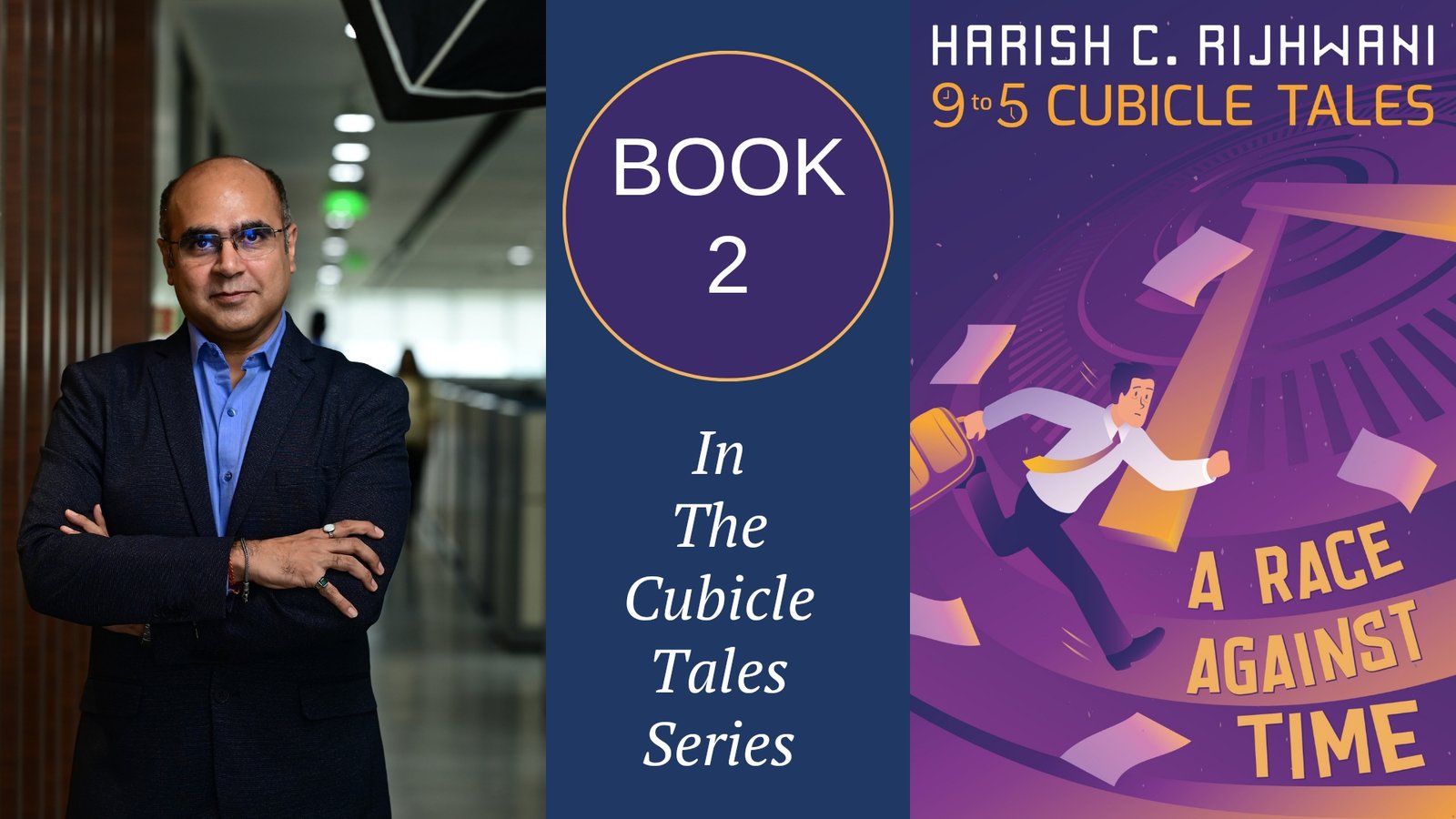
In a bustling world where the confines of a nine-to-five cubicle dictate the rhythm of many lives, author Harish C. Rijhwani, delves into the intricate mosaics of corporate existence with his compelling series, “9 to 5 Cubicle Tales. In this exclusive interview conducted by Diplomatist, Harish provides insight into the motivations behind his literary venture, the overarching themes and narratives woven into his work, and the resonance of his depicted experiences with today’s dynamic workplace environment. From personal anecdotes to insightful reflections on workplace culture and dynamics, Harish offers readers a glimpse into the meticulous craftsmanship that underpins his storytelling.
Diplomatist: What motivated you to write ‘9 to 5 Cubicle Tales’ and extend the series?
Harish: Before writing 9 to 5 Cubicle Tales, I had three non-fiction books. But even in the first three books, there was a hint of storytelling, which compelled me to write fiction. When I conceptualized Cubicle Tales, I thought it would be one book. But, when I started writing, I realised this topic could not be covered in one book and had to be a series. I haven’t seen many novels showcasing the long journey of an IT professional. Hence, I thought of showcasing the journey of an IT employee, where one meets various characters and overcomes different challenges.
Diplomatist: Could you provide a concise overview of the themes and narratives presented in ‘9 to 5 Cubicle Tales’?
Harish: The book explores various themes and narratives, starting with family relationships. We then dwell on the corporate life of this young IT professional, where one meets various characters viz, the calm and supportive boss, the envious senior, the colleague who loves to give excuses, the unrealistic quality auditor, funny roommates, the innovator, and, above all, friendships to die for.
Diplomatist: How do the depicted experiences in your book resonate with today’s workplace environment?
Harish: The reality of the corporate world is that most of us work to fulfil our personal goals/dreams, and this hasn’t changed over the years. The book’s underlying theme revolves around a personal goal the protagonist wants to achieve, which is still relevant with many people shifting their base location and coming to live in the city. The book also covers various experiences, such as travelling onsite, corporate politics, maintaining a work-life balance, office romance, the pressure of deadlines, and the corporate goal of making money.
Diplomatist: Are there specific personal anecdotes or career experiences that have shaped the storyline of your book?
Harish: The book touches upon various corporate employee anecdotes and career experiences and is not limited to my knowledge. The two books showcase the corporate world’s fun side via a treasure hunt, a squash tournament, or even a potluck. The book also depicts how life is different when one has to stay in the US versus living in India under the support of one’s parents. I have tried to highlight relatable experiences one faces, be it good, bad, or ugly. Additionally, the book is mostly in first person, so you will feel like you are the protagonist when you read it.
Diplomatist: In what manner do you think your book enhances comprehension of workplace culture and dynamics?
Harish: My book takes the reader on a vivid journey through the corporate life of an IT professional. I have tried to showcase realistic characters that one meets in the office space and explore both sides of a specific character, be it good or bad. The corporate world has many unwritten rules, touched upon in my novel, from celebrating an employee’s last working day, facing the dreaded quality process auditor, or dealing with subtle office politics. The book also covers cultural differences and workplace dynamics from different locations and environments in India and the US.
Diplomatist: How do you manage the equilibrium between entertainment value and conveying insights or messages in your writing?
Harish: When I started writing my novel, I consciously decided each chapter should be nearly two thousand words. Simple dialogues, relatable and easy-to-reach chapters, and some plot twists bring entertainment value. In addition, I have focused on covering the key elements of writing, viz., being vivid and using show-don’t-tell wherever I could because that is what I learned when studying creative writing. One of the underlying messages of the book is “Perseverance,” which is depicted by the protagonist’s ability not to give up and to face challenges upfront via the story.
Leave a Reply